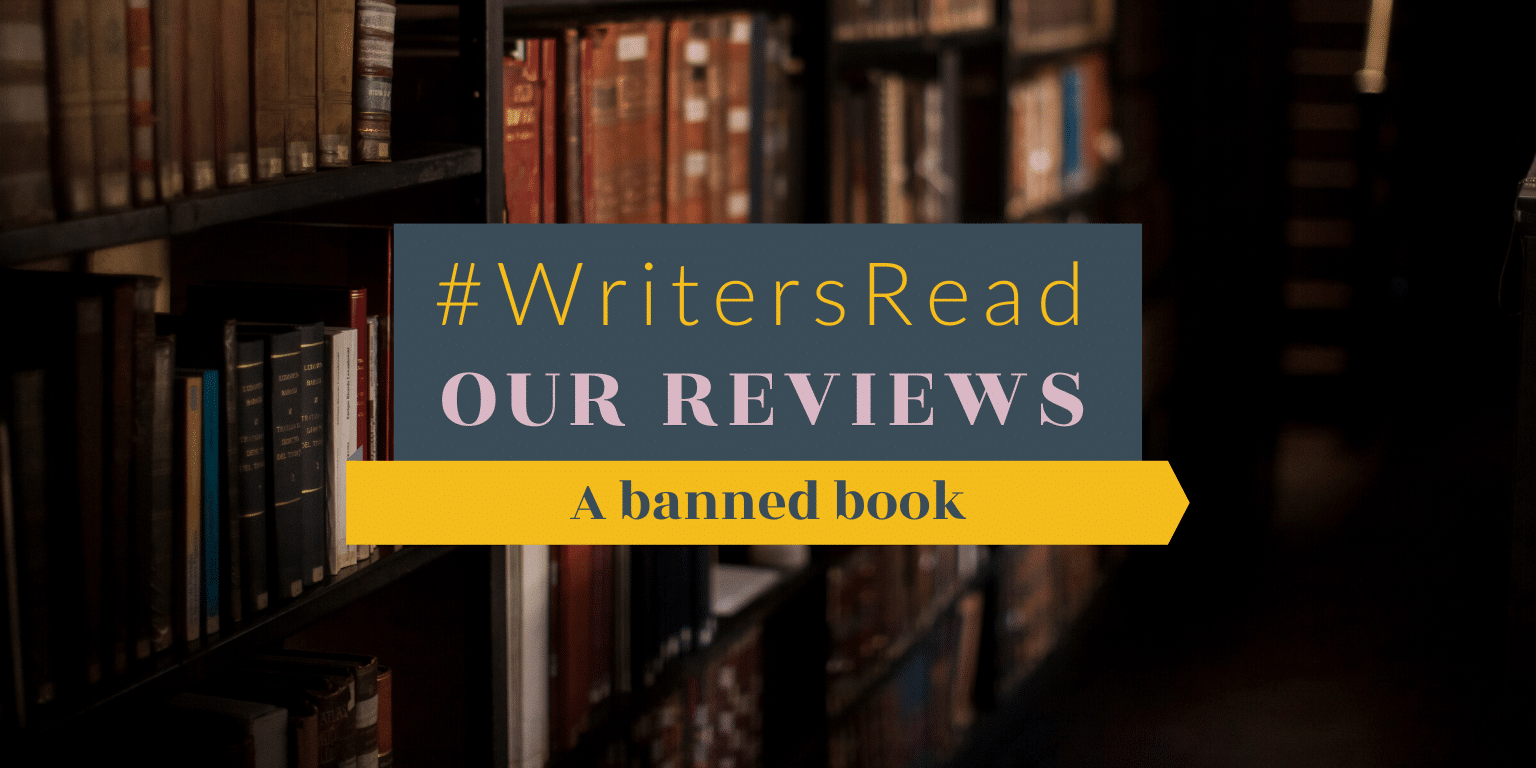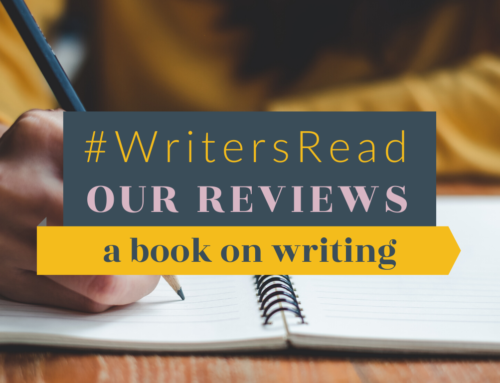April #WritersRead Book Club Chat:
Thursday, April 30th @ 7pm EST
Join on Twitter!
Banned books are those that have been challenged (by an individual or group) and removed from schools and/or libraries in order to ‘protect children’. This month we read banned books in order to practice identifying and dissecting the reasons why they were censored. Below you’ll find our full reviews from our picks this month, and a review for our month’s guest, actor and audiobook narrator, Corrie Legge. Join us later this week for book club on Twitter! (Details here).
Corrie’s Review
Beloved, by Toni Morrison
Set in the years following the Civil War, Beloved tells the story of Sethe, a freed woman haunted by the wounds of her life as a slave, literally. Sethe and her 18-year-old daughter Denver live at 124 Bluestone Road. Once the center of their community,124 (and those within) is now terrorized by the spiteful spirit of Sethe’s baby daughter, who is referred to only by the single word etched on her tombstone, Beloved.

While I absolutely do not agree with those who have fought to get Beloved banned from school curriculum, I do agree that the content of the novel is very heavy. But this is precisely why the book needs to be read. Slavery was horrifying. And that pain, inflicted upon millions of slaves throughout the course of history, didn’t end with the ratification of the 13th Amendment. To censor books that face these dark topics head on is to deny history. I’m so thankful to Morrison for providing me the opportunity to understand a little better and feel a little deeper. Now it’s your turn.
Corrie Legge has been a self proclaimed avid reader since she was a child, when “rebellion” meant reading by flashlight under the covers after bedtime. Now, as a professional audiobook narrator and actress, she gets to help bring stories and characters to life for a living. In the audiobook world, her youthful voice makes her perfect for YA, middle grade, and children’s book narration. You can learn more about Corrie on her website.
Rachel’s Review
The Color Purple, by Alice Walker
Throughout reading The Color Purple by Alice Walker, I frequently found myself saying “I understand why this book was banned.” The violence, sexual content, mature themes, gender inequality, and explicit language would make any school teacher, parent or librarian believe that this book shouldn’t be in the hands of children. However, by the time I finished reading, it was so abundantly clear to me that books like this are needed.

Celie, a young black woman growing up in the early 1900s, is physically and sexually abused by her father (bearing him two children) before she is sold off to a widower, known as Mr.___, who treats her the exact same way. Celie resigns herself to the constant oppression from her abusive husband and stepchildren. When she meets Shug Avery, a larger-than-life singer who is her opposite in every way, Celie begins to see what an empowered woman looks like. After a friendship and eventually a romantic relationship develops between the two women, Shug teaches Celie how to stand up for herself and fight back against her male oppressors. Through Shug’s support and Celie’s relationships with other strong women, Celie is finally able to break free from the cycle of abuse and become independent.
Celie begins as a timid and meek girl with no sense of self. She says, “But I don’t know how to fight. All I know how to do is stay alive” and so much of the first half of this book feels like you are fighting for Celie’s life right alongside her. Yet throughout her journey, we see her transform into a strong, independent, and unapologetic woman. We see her experience unconditional yet imperfect love, even though she never thought she’d understand it. We see her find contentment and fulfillment, despite all she had been through.
Walker does not shy away from the violence, racism, and oppression that Celie and others experience. The content may be explicit, but it is a representation of real experiences and therefore valid. In the heart of Celie’s change, we hear a message about female empowerment, fighting back against oppression, and the power of one’s own narrative. Stories like The Color Purple need to be told—finding empowerment in the face of oppression is a message that people all around the world still need to hear today.
Emily’s Review
The Outsiders, by S.E. Hinton
For decades after it was published, The Outsiders by S.E. Hinton has been banned because it features drug and alcohol abuse, violence and offensive language—but these things are part reality for so many teenagers, to erase them is to deny the real struggles kids go through.

I fiercely believe in the power of authentic representation in stories, especially stories for youth. While we may want to protect kids from ‘difficult subjects’, the reality is that they’re not strangers to those difficulties in their day to day lives. By fully and authentically acknowledging the dark things kids experience, you let them know they aren’t alone—and that knowledge can literally save lives.
The Outsiders not only portrays the grim lives of ‘greaser’ kids during the 1960s, but it was also written by a teenager and the message of the story is that it’s critical for kids’ realities to be told.
At the end of the book, Ponyboy decides to write about his traumas of the last few weeks, giving his reasoning as: “I could see boys going down under street lights because they were mean and tough and hated the world, and it was too late to tell them that there was still good in it, and they wouldn’t believe you if you did. It was too vast a problem to be just a personal thing. There should be some help, someone should tell them before it was too late. Someone should tell their side of the story.”
As much as we want to, we cannot erase or censure trauma from kids’ real lives. What we can do is use stories to assure them they’re not alone and ensure they see themselves. We do that by supporting and uplifting diverse voices that portray a variety of life experiences.
Join #WritersRead!
This year we’re hosting a book club just for writers! Each month you pick a book within the month’s theme, then we’ll meet for the #WritersRead book club chat on Twitter to discuss what you read and learned. Didn’t join this month? Hop on board for next month! You’ll find the calendar of themes and details for how to join here!







Wow, such heavy reads this month! That definitely seems to be a theme with banned books. I read Two Boys Kissing and think it would make a great topic of discussion in any classroom–or outside the classroom. https://kmkjensen.wordpress.com/2020/05/07/what-ive-been-reading-18/
They were heavy! Love your pick and review, yours seems a little less heavy and a little more kissy 🙂